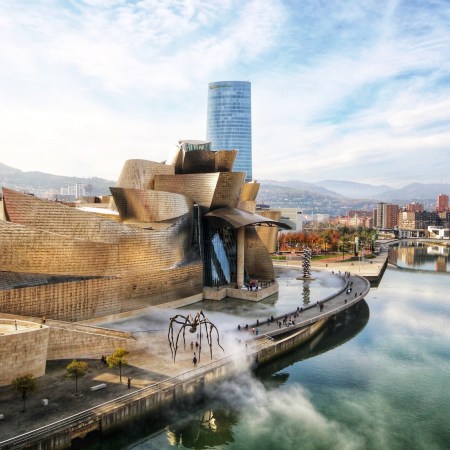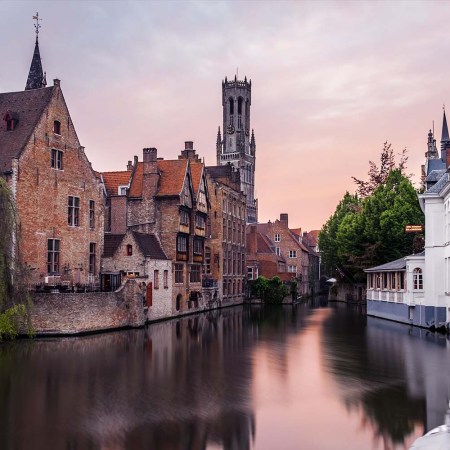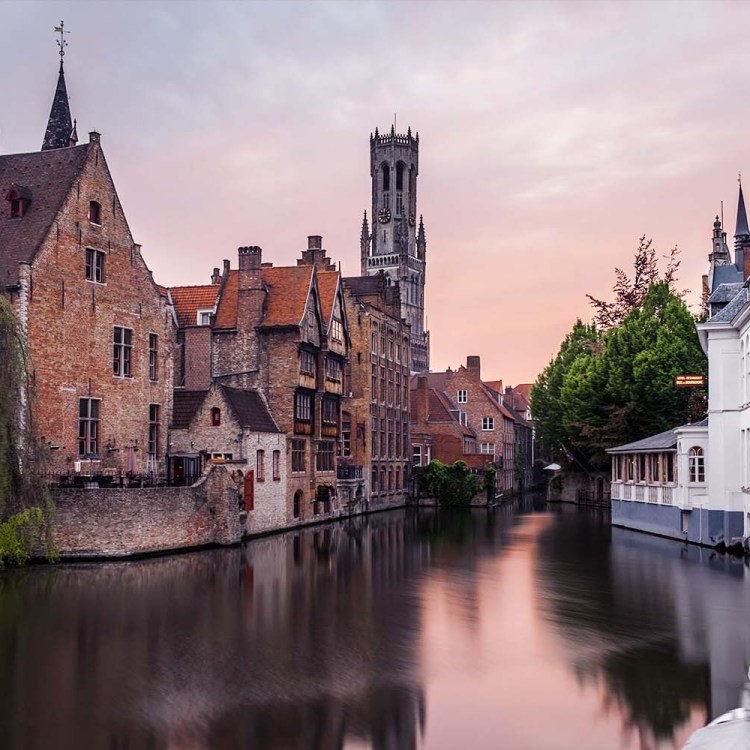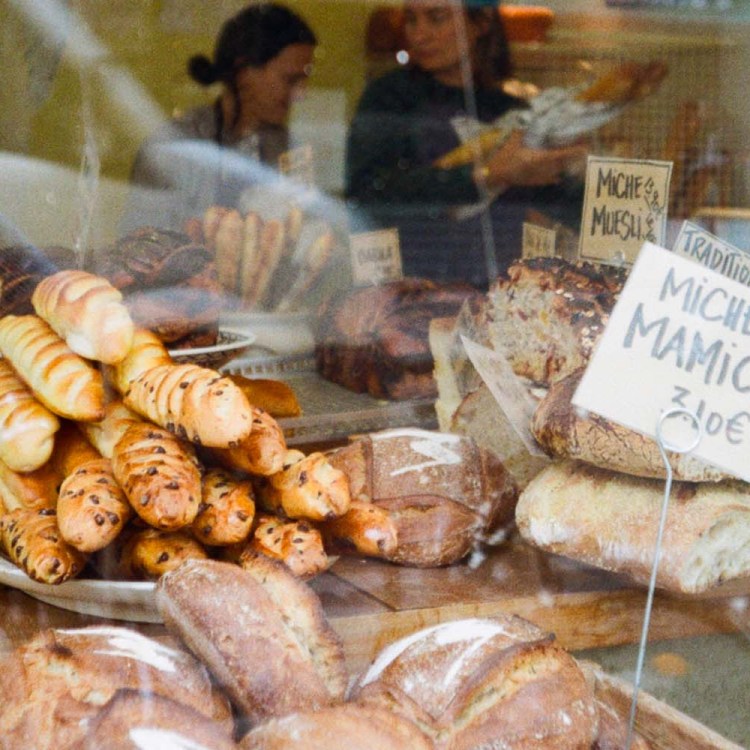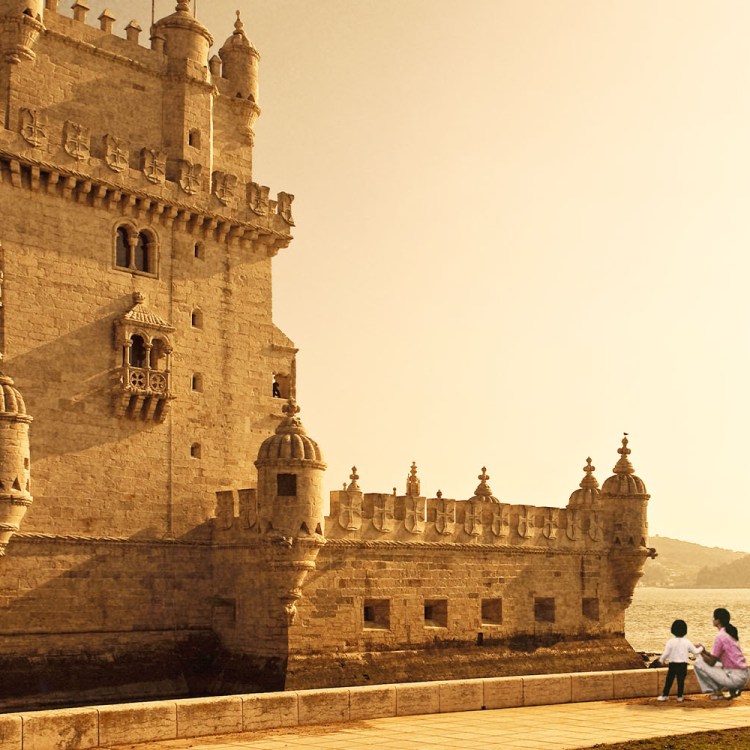Hervé Gallo and Cédric Fontenit came up with their big idea before the pandemic: A new type of travel lodging — as luxurious as a palace hotel, complete with concierge services, state-of-the-art gym equipment and Michelin-starred dining…albeit transposed onto a private villa. It was a new scheme, to hear the pair tell it, that will redefine the very idea of luxury travel.
“Exceptional locations, exceptional details, exceptional views, exceptional service… all of that creates an experience,” Gallo tells InsideHook. “And we believe it’s very difficult to provide an experience when you have 500 people in a hotel.”
The plan seemed in-line with travel trends at the time, as Luxury Travel Magazine predicted both a rise in off-the-beaten-track destinations and “personalization” for the 2020 travel season (RIP). But the pandemic actually only magnified these desires to the nth degree.
“Suddenly, when Covid came up, lots of people wanted to go on holiday in very exclusive places, and they didn’t want to share things anymore,” says Gallo, who was formerly a managing director at Barclays. “That was true for boats; that was true for helicopters and planes. And that’s true for hotels and villas.”
As compared to Paris’ Ritz, with its 142 rooms, or New York’s St. Regis, with 238, the first villa in the Amavia Collection, in Villefranche-sur-Mer, on the French Riviera, boasts just six suites. The comparison could seem wholly incongruous, if not for the fact that Amavia has absorbed not just the luxury appeal of palace hotels but also their curation and, indeed, an essential element of their business model: In an industry that Gallo notes is “still in its infancy,” Amavia stands out from other luxury villa companies in that cuts out the middle man entirely, owning each of its properties outright.

“Big hotel chains have owned their own assets, as their crown jewels for their brands,” says Fontenit, who has extensive experience as an analysts in both the hotel and real estate industries in Europe. “Similarly, it’s very important to us — it takes more time, but it’s very important to us — that we set the standards consistently throughout the brand.”
This, according to the pair, is the key to ensuring the luxury experience folded into the promise of Amavia. “You can’t have a platform that guarantees the same level of standards,” explains Gallo. “It’s impossible.”
But in France specifically, realizing this objective was not without its share of struggles. “Culturally, we have a country with a huge tradition of maintaining,” explains Fontenit. “Planning permission is not always easy in France.” That said, he notes, the extensive red tape is worth it for the freedom that owning each property provides.

“I think we want to be a holder of great assets, and a long-term holder of assets,” he says, “and we’re going to take our time to cherry-pick the best assets that we can transform, and update to make it have all the amenities that we want.”
These amenities include a wide range of options, which can be tailored to suit guests’ every desire and whim: In addition to curated art installations, private pools, and menus curated by Michelin-starred chef Alain Llorca, yoga instructors and massage therapists can be brought to the villa at a moment’s notice; gastronomes may be ferried to the nearby Cours Saleya market in Nice for a guided tour with a Michelin-starred chef or introduced to the city’s last local coffee roaster.
These and other experiences – not to mention on-site staff – are expertly managed by Vincent Digne, Chief Executive Officer of the Collection, who prides himself on providing an ever-present pair of ears, forever listening for ways to further curate guests’ experiences.
“The role of our staff is very important, knowing the villa inside out, being ready and available to answer questions, whilst remaining discreet and allowing our guests to disconnect and enjoy their time,” he explains. “We aim to create an experience that the client could never duplicate had we not been there to help guide them and allow them to let go and fully relax and enjoy what we have created.”
And thanks to the unique format of Amavia, Digne is able to add his own spin to the priorities of the collection, notably with regards to a sustainable approach reliant on local and organic sourcing whenever possible.
“I think the cost — the sheets, the towels, the sustainable providers we use — are a lot more expensive than the non-sustainable competitors,” he says. “Had we worked with other owners, we may have been met with more resistance in terms of cost.”
Amavia is still a young brand, but the team intend to take their concept further afield — not just in the South of France, but also in Courchevel or Corsica, Italy or Spain. Thus far, they visited dozens of villas; about 95% of things they see, Gallo says, “we just don’t get.” And waiting for the perfect space is most of the battle, for these experts, who have no problem turning the indelible, age-old real estate motto on its head.
“Most people believe location makes the place special, but actually, it works both ways,” says Gallo. “We believe that the product can make the location special.”
For more travel news, tips and inspo, sign up for InsideHook's weekly travel newsletter, The Journey.

